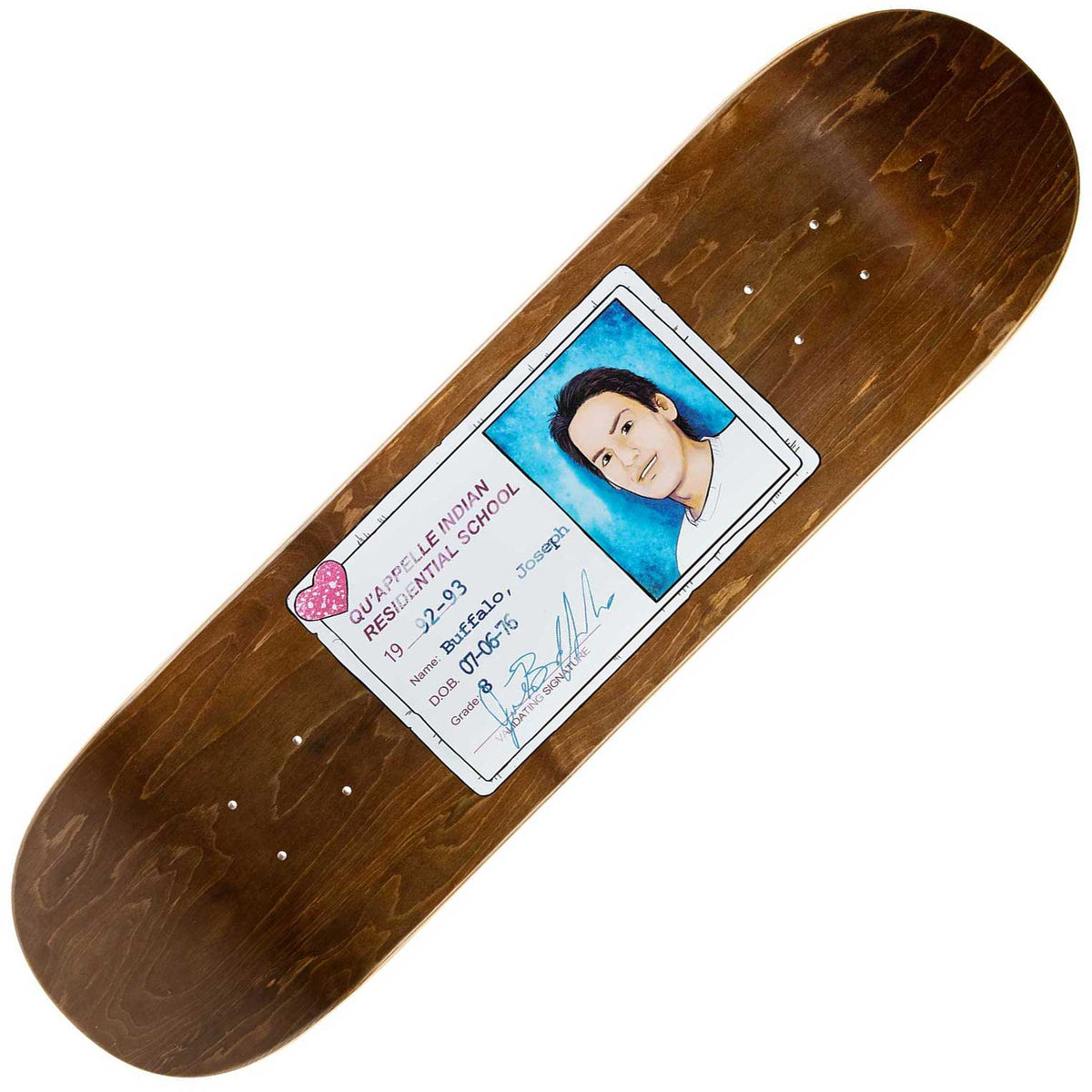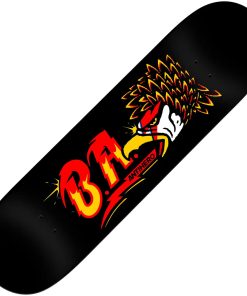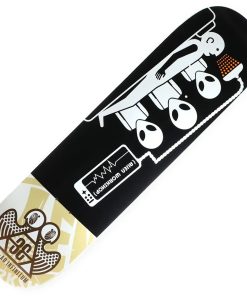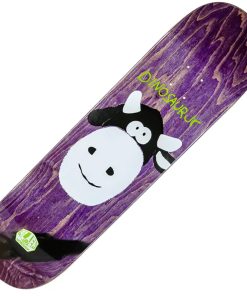Colonialism Joe Buffalo ID deck (8.25″) Colonialism
$ 72,00 $ 36,00
Stain colour may vary. Grip not included.

“When the School is on the reserve the Child lives with its Parents, who are savages; he is surrounded by savages.” −sir john a. macdonald to the House of Commons in 1883 (as cited in the Final Report of the Truth & Reconciliation Commission of canada)
This Joe Buffalo pro-model is a re-creation of his student ID card at the Lebret Residential School in Lebret, Saskatchewan, in Treaty 4 Territory. Joe attended the Residential School for five years. The Lebret School was the second last school to close in all of canada. The last Residential School to close was Gordon’s School in Punnichy SK in 1996. Within the Residential School system, Indigenous children were subject to cultural genocide, were forcibly separated from family, forbidden from practicing their cultural and spiritual traditions, and oftentimes subject to horrendous treatment and even death. Residential School survivors recount experiences of inadequate education, loneliness, hunger, illness, as well as physical, sexual, emotional and mental abuse and violence. St. Anne’s Indian Residential School in Albany, Ontario, for example, represents the extent to which these hardships were endured, where this particular institution was equipped with an electric chair for disciplining and torturing students. Not surprisingly, more than 6,000 Residential School student deaths have been documented by the Truth and Reconciliation Commission of canada, and it is assumed even this figure falls short of the real outcome. According to CBC News, by these estimates, the odds of dying for children in Residential Schools were higher than the odds of dying for Canadians serving in the Second World War.
Joe endured and survived Residential Schools. He found skateboarding at a young age and this has been a major part of his life ever since. Skateboarding is a powerful outlet that helped Joe overcome adversity throughout his life by keeping him focused on a positive activity that not only kept him busy but also challenged him to grow mentality, physically, emotionally, and spiritually. The artwork featured on this skateboard graphic is created by Pamela Prostarr. She helped Joe create this pro-model for him.
Unfortunately, the original card could not be scanned for this skateboard because it was destroyed in a House fire..
Imported
Michael Langan is an Indigenous artist from Cote First Nation, Treaty 4 Territory, who is committed to educating people through creative renderings of our colonial past. After moving to Regina almost 20 years ago, Micheal immersed himself in the local skateboard community, of which he has remained a prominent member ever since. Last spring, Micheal launched his own skateboard company – Colonialism Skateboards – to draw attention to, and have people engage with, complex and untelling aspects of Indigenous Canadian history and culture. By combining skateboard art with a history lesson on Indigenous culture and colonialism in Canada, Micheal’s innovative approach is leading a conversation about how Canadians, especially youth, can move forward together through reconciliation.
Profoundly influenced by his upbringing and experiences as an inter-generational residential school survivor, Micheal’s initiative has grown and expanded beyond the realm of skateboarding. He has been invited to elementary and high school classrooms in Regina, Fort Qu’Appelle, as well as various community panels to speak about his company and its mandate. He was recently invited to the Winnipeg Art Gallery to speak on an Indigenous artist panel, where his boards were featured.
Colonialism Skateboards continues to receive international attention as Micheal inspires skateboarders and non-skateboarders alike to learn about the history and enduring legacy of colonization, and to think about ways to address these ongoing challenges locally and globally.
Colonialism has produced several pro boards for Joe Buffalo as well as a guest board with Dustin Henry.
Micheal has been a long time member of the Tiki Room family.
Fast Shipping and Professional Packaging
We have a range of shipping options thanks to our long-term relationship with UPS FedEx DHL. Our warehouse staff is highly skilled and will wrap your goods in accordance with our exact and precise specifications. Your goods will undergo a thorough examination and will be properly packaged prior to being delivered. We ship to thousands of customers every day from all over the world. This is a sign of our determination to be the largest online retailer in the world. The warehouses and centers for distribution are in Europe, as well as the USA.
Orders that include more than 1 item are assigned processing times in accordance with the item.
We will carefully examine all items ordered before shipping. Most orders are shipped within 48 hours. The estimated delivery time is between 3 and 7 days.
Returns
We do not manage the stock in our factory and warehouse. The actual levels of stock can change at any time. Please be aware that it's possible that your order will run out of stock even after you have placed the order.
Our policy lasts thirty days. If 30 days have passed by since your purchase however, we're unable to give you a return or exchange.
Your item must be in the original packaging and in good condition. It must also not be used. You must have the item in its original packaging.












































